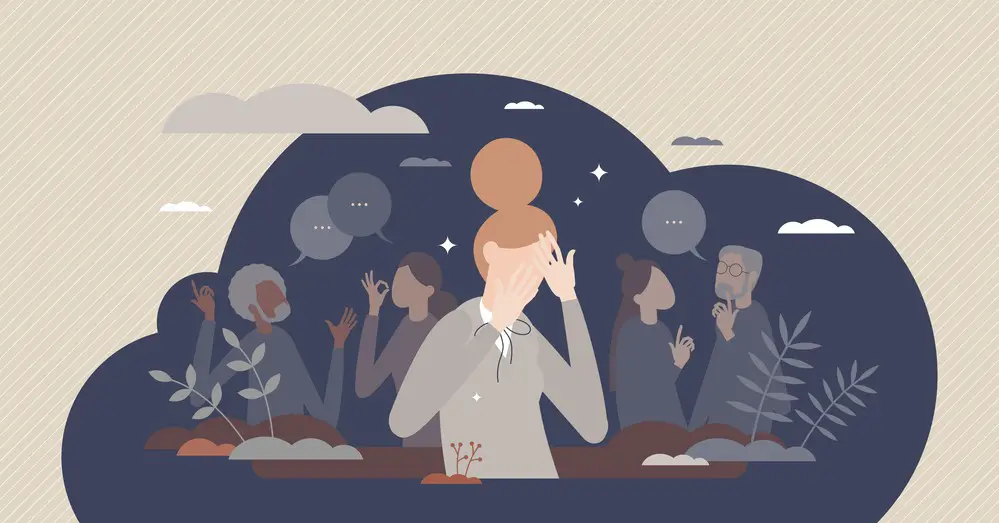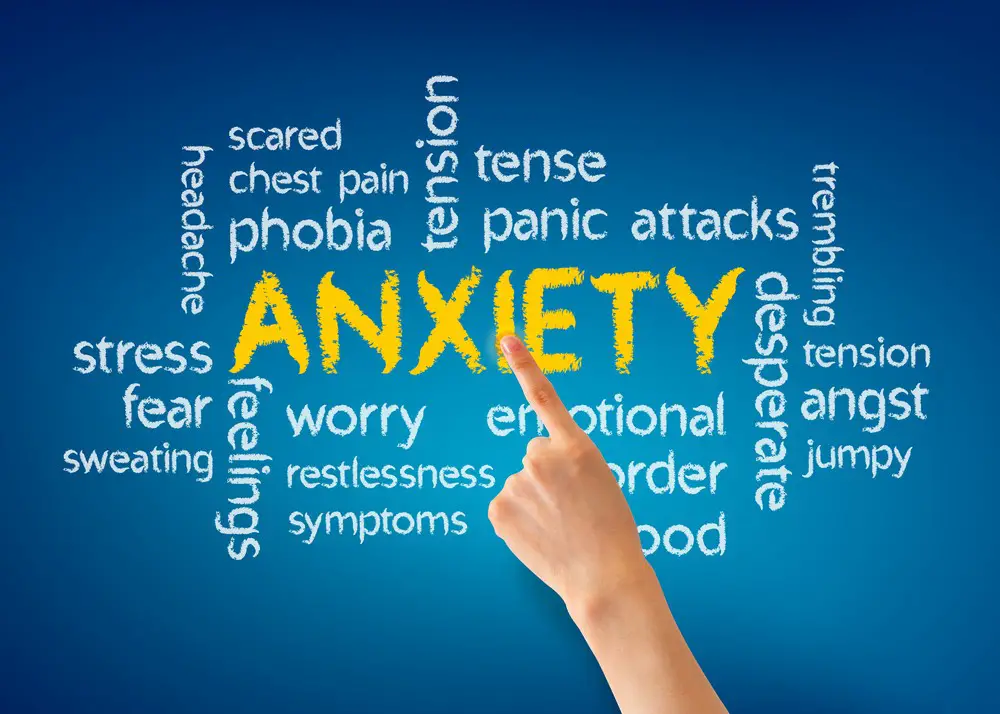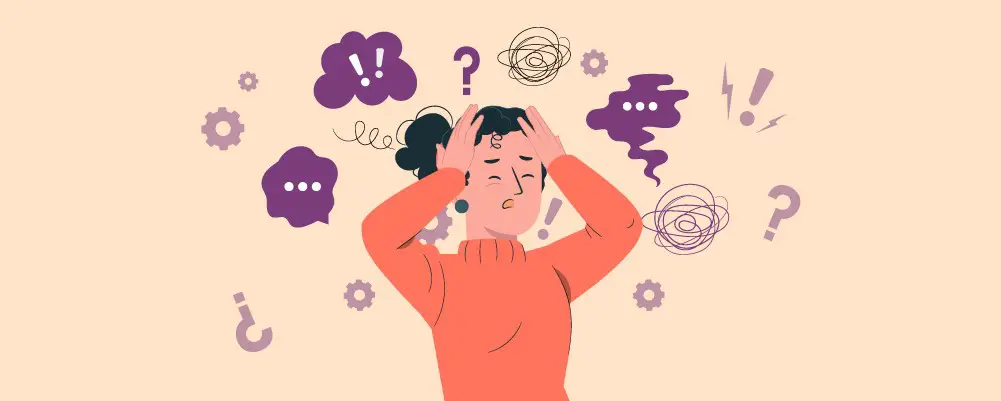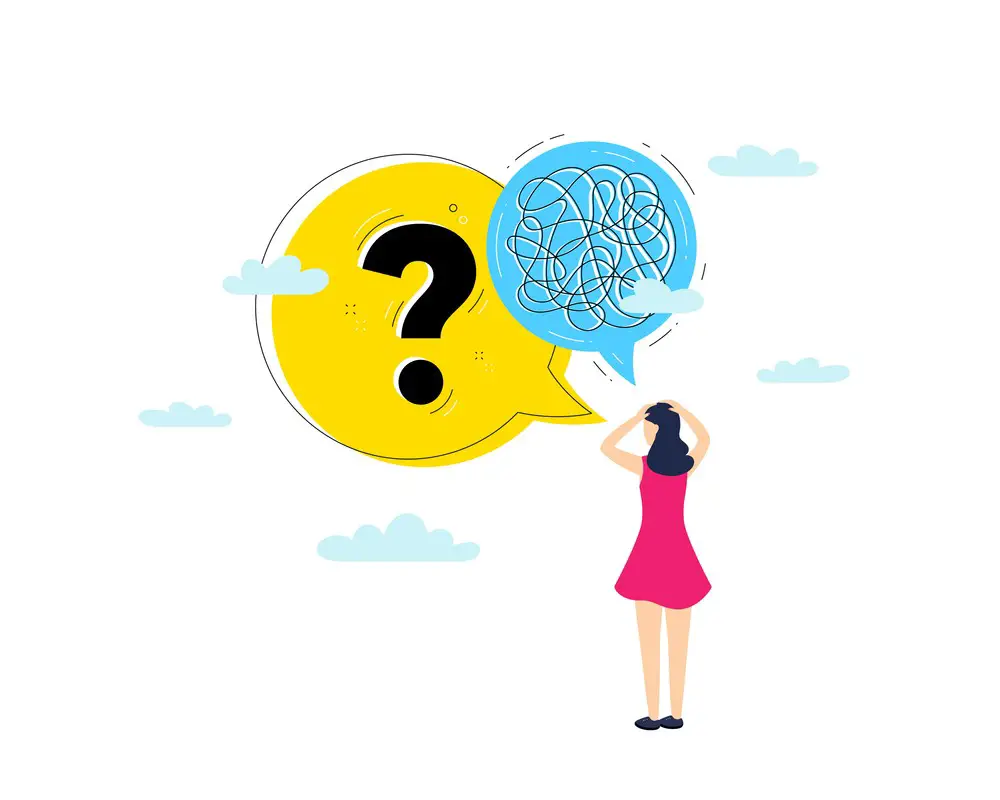As a BetterHelp affiliate, we receive compensation from BetterHelp if you purchase products or services through the links provided
Anxiety is a natural stress response, and everyone experiences it occasionally. However, when anxiety becomes overwhelming or persistent, it may interfere with daily life, making it difficult to work, maintain relationships, or make decisions. In such cases, knowing when to seek professional help is important.
While occasional moments of stress-induced anxiety are common, chronic or severe anxiety is a cause for concern. It can manifest through various symptoms, such as racing thoughts, irrational fears, and constant worry. Recognizing the warning signs and understanding when to consult a healthcare professional is fundamental to managing anxiety effectively.
A general guideline is to see a doctor when anxiety starts disrupting daily activities or causing distress for over two weeks. Early intervention with a trained professional can help people identify triggers, develop healthy coping strategies, and prevent the progression of anxiety-related disorders.
Recognizing Anxiety Symptoms

Physical Symptoms
Anxiety can manifest through physical symptoms that may not seem directly related to worry or fear. Some common physical symptoms of anxiety include:
- Headaches
- Fatigue
- Nausea
- Diarrhea
- Sweaty palms
Individuals experiencing these symptoms may not always recognize them as signs of anxiety. However, paying attention to these manifestations is essential, especially if they occur frequently or interfere with daily activities.
Emotional Symptoms
In addition to physical symptoms, anxiety presents various emotional symptoms that can affect an individual’s well-being. These emotional symptoms may include:
- Excessive worry
- Irritability
- Feelings of fear
Recognizing these emotional symptoms can be challenging, as people dismiss them as typical responses to stress or everyday events. However, understanding the connection between these feelings and anxiety can help individuals seek appropriate help.
Early recognition of anxiety symptoms is crucial for seeking professional help and developing coping strategies. Awareness of both physical and emotional symptoms allows individuals to make informed decisions about when to see a doctor for their anxiety.

Types of Anxiety Disorders
Generalized Anxiety Disorder
Generalized Anxiety Disorder (GAD) is characterized by excessive, uncontrollable worry about various aspects of life, such as work, relationships, and health. People with GAD often find it difficult to relax and may experience physical symptoms like headaches, muscle tension, and difficulty sleeping. Some common signs of GAD include:
- Persistent and excessive worry
- Restlessness or feeling on edge
- Easily fatigued
- Difficulty concentrating
- Irritability
- Sleep disturbances
Panic Disorder
Panic Disorder occurs when a person experiences recurrent, unexpected panic attacks, sudden periods of intense fear and anxiety. Specific situations can trigger these attacks, or they may occur without any apparent cause. Symptoms of a panic attack include:
- Rapid heartbeat
- Sweating
- Trembling or shaking
- Shortness of breath
- Feelings of choking
- Chest pain or discomfort
- Fear of losing control or going crazy
Individuals with Panic Disorder may also develop a fear of having panic attacks, leading to avoidance of certain situations or environments.
Social Anxiety Disorder
Social Anxiety Disorder is characterized by a persistent fear of being judged, embarrassed, or humiliated in social situations. This can cause significant distress and negatively impact a person’s ability to form relationships or participate in social activities. Common symptoms of Social Anxiety Disorder include:
- Intense worry about social situations
- Fear of being judged or humiliated
- Avoidance of social situations or events
- Physical symptoms like blushing, sweating, or trembling in social settings
- Difficulty speaking, making eye contact, or interacting with others

When to See a Doctor
Persistent and Excessive Worry
It’s normal to experience worry and stress in everyday life. However, if an individual constantly experiences excessive worry that lasts for months, it may be time for them to consider seeking medical advice. Symptoms that indicate excessive worry may include but are not limited to:
- Constant fear and apprehension
- Trouble concentrating
- Irritability
- Trouble sleeping
Impact on Daily Life
If anxiety significantly impacts a person’s daily life, interfering with their work, relationships, or hobbies, it’s essential to consult a doctor. Indications that anxiety affects daily life can include:
- Avoidance of social situations
- Difficulty carrying out tasks at work or school
- Strained relationships with family and friends
Physical Health Concerns
Anxiety can manifest in several physical symptoms, which may signal the need for medical attention. These symptoms might include:
- Fatigue
- Headaches
- Muscle tension
- Digestive problems
If a person has existing health conditions that can be exacerbated by anxiety, it’s crucial to consult a doctor to manage those symptoms properly.
Suicidal Thoughts
Suicidal thoughts or feelings are a medical emergency, and immediate help should be sought. If someone expresses thoughts of suicide, it’s essential to take them seriously and support them in getting the help they need. Resources like crisis hotlines and mental health professionals can assist in these situations.
Professional Help for Anxiety
Primary Care Doctor
It is advised first to consult a primary care doctor when experiencing anxiety. They can help determine if a medical condition or medication causes anxiety and may recommend treatment options. Primary care doctors can also refer patients to mental health professionals if needed.
Mental Health Professionals
Seeking help from mental health professionals such as psychologists, therapists, and counselors is essential for managing anxiety. These professionals can provide therapy, like cognitive-behavioral therapy (CBT), to help patients understand and manage their anxiety symptoms effectively. Support groups and workshops can also be helpful.
Specialists
Consulting with psychiatrists and medical doctors specializing in mental health may sometimes be necessary. They can diagnose anxiety disorders, prescribe medication, and monitor treatment progress. If anxiety is caused by a specific phobia or trauma, a specialist with expertise in those areas can be beneficial.
Anxiety Diagnosis and Treatment
Diagnosis Process
The process of diagnosing anxiety disorders typically involves evaluation by a healthcare professional. They may ask about symptoms, medical history, and any potential triggers. The DSM-5 (Diagnostic and Statistical Manual of Mental Disorders, 5th edition) guides a clinical diagnosis.
Medications
Many individuals with anxiety disorders benefit from medication as a treatment plan. Some common types of medications include:
- Antidepressants: Selective serotonin reuptake inhibitors (SSRIs) and serotonin-norepinephrine reuptake inhibitors (SNRIs) are often prescribed for anxiety disorders.
- Benzodiazepines: These medications provide rapid relief for panic attacks but can lead to long-term dependence.
- Beta-blockers: They may help control physical symptoms of anxiety, like trembling or rapid heartbeat.
It is essential to consult a doctor before starting any medication, as potential side effects and interactions with other drugs or alcohol must be considered.
Psychotherapy
Psychotherapy, or talk therapy, can be a highly effective treatment for anxiety. Cognitive-behavioral therapy (CBT) is a widely used approach that helps individuals identify and change negative thought patterns and behaviors contributing to anxiety.
Alternative Treatments
In addition to medication and psychotherapy, alternative treatments for anxiety may be beneficial. Some options include:
- Mindfulness techniques, such as meditation and deep-breathing exercises
- Exercise, which can release endorphins and help reduce anxiety symptoms
- Yoga and tai chi, which combine physical movement and mindfulness practice
Consult with a healthcare professional before starting any treatment, whether medication, therapy, or alternative methods, is crucial. They can help create a personalized treatment plan tailored to address the specific needs of the individual experiencing anxiety.
Lifestyle Changes and Coping Strategies
Identifying Sources of Stress
Identifying the sources of stress, worry, and anxiety in one’s life is essential. Common causes may include work-related pressures, personal relationships, trauma, and daily hassles. By recognizing these triggers, individuals can develop effective coping strategies to minimize their impact and alleviate anxiety.
Relaxation Techniques
Incorporating relaxation techniques into one’s routine can help manage stress and reduce anxiety. Some popular methods are:
- Meditation: Practicing mindfulness meditation can allow individuals to focus on the present moment and help reduce worry about the future.
- Breathing exercises: Deep and slow breathing techniques can help soothe the nervous system and promote feelings of calmness.
- Progressive muscle relaxation: This technique involves tensing and relaxing specific muscle groups to release tension and induce relaxation.
Exercise and Diet
A healthy lifestyle, including regular exercise and a balanced diet, can significantly impact managing anxiety. Exercise can help release endorphins, which are natural mood boosters. A well-balanced diet can also provide the necessary nutrients for physical and mental well-being. Some dietary considerations to help mitigate anxiety include:
- Consuming a variety of fruits, vegetables, lean proteins, and whole grains
- Limiting caffeine and sugar intake
- Drinking enough water to stay hydrated
Support Groups
Joining a support group can offer valuable assistance in coping with anxiety and stress. These groups provide a safe space for individuals to share their experiences, thoughts, and feelings with others experiencing similar issues. This connection can foster understanding and help individuals feel less isolated. Additionally, support groups can provide useful resources, such as information on local mental health professionals and coping techniques.

Resources and Support
National Organizations
Several national organizations provide resources and support to individuals dealing with anxiety:
- Mayo Clinic: Mayo Clinic is a leading healthcare institution that offers a wealth of information on anxiety disorders, symptoms, and treatment options. Visit their anxiety page.
- National Alliance on Mental Illness (NAMI): NAMI provides advocacy, education, support, and public awareness to help people with mental health conditions like anxiety. Visit their anxiety page for resources and support.
- Anxiety and Depression Association of America (ADAA): ADAA is dedicated to preventing, treating, and curing anxiety disorders. They offer resources and support for both professionals and individuals. Visit their resources page for useful materials.
- National Institute of Mental Health (NIMH): NIMH is a federal agency that provides research, resources, and outreach on mental health. They offer helpful information on anxiety disorders, including symptoms, risk factors, and treatment. Visit their anxiety disorders page.
Online Sources
The internet can also be a useful source of information and support for those dealing with anxiety:
- Understanding Anxiety: Understanding Anxiety is a comprehensive resource for anxiety sufferers, offering practical tips and advice on managing symptoms. Visit their website here.

FAQs
- 7 Ideas to Help You Relax and Unwind on a Family Vacation - April 27, 2025
- How Having Cybersecurity Protection Helps You Relax - April 25, 2025
- 8 Reasons Why Spending Time Outside Calms You Down - April 25, 2025
This site contains affiliate links to products. We will receive a commission for purchases made through these links.



